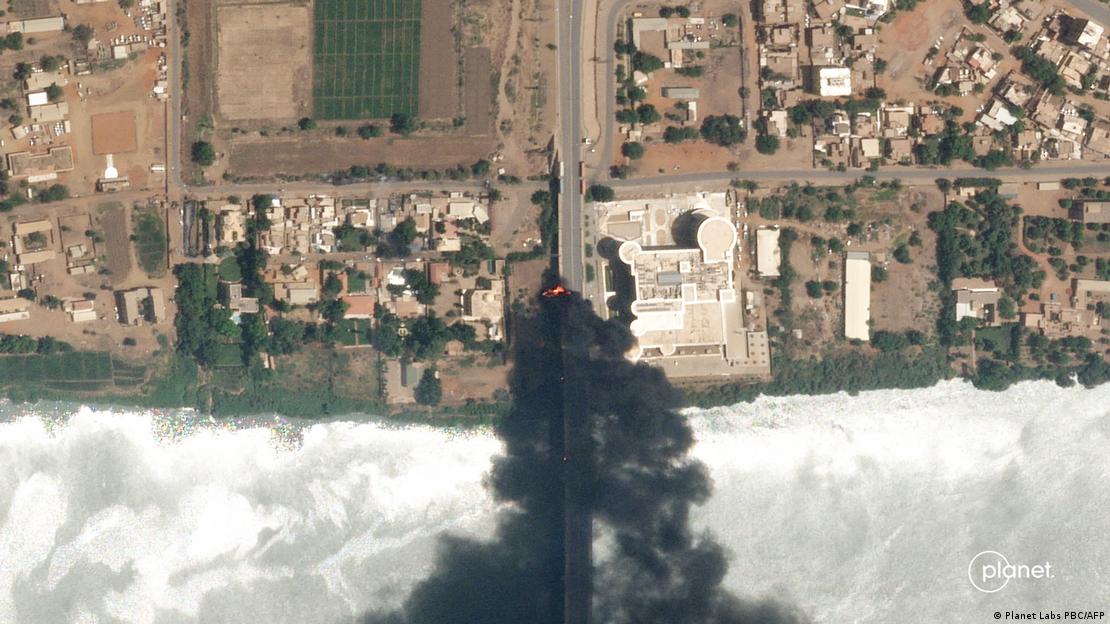The people of Sudan have been waking up to a third day of battles between the army and the paramilitary Rapid Support Forces (RSF), causing international concern and fears among those unable to leave their homes to get essential services. The death toll has risen to at least 97, with air raids and shelling intensifying in parts of the capital, Khartoum, and its sister city, Omdurman. As a result, residents are forced to hide in their homes, and power outages and looting were reported. Medical committees are calling for calm and safe passage for patients to reach medical facilities and to allow medical teams to reach the wounded.
The involvement of foreign actors in the conflict has added to the complexity of the situation. During al-Bashir’s decades-long rule, Russia was a dominant force in Sudan, even reaching an initial deal to build a naval base on Sudan’s Red Sea coast. However, after al-Bashir’s removal, the US and European nations began competing with Russia for influence in Sudan, which is rich in natural resources, including gold, but has been mired in conflicts and military coups. The military controls most of the country’s economy, but the RSF runs major gold mining areas, a key source of income for the powerful paramilitary.
Al-Burhan and Dagalo, the two most powerful figures in Sudan’s transitional government, have also forged close ties with Saudi Arabia and the UAE. Sudanese troops drawn from the military and the RSF have fought alongside the Saudi-led coalition in the long-running war in Yemen. Meanwhile, Egypt, another regional power, has deep ties with Sudan’s military. The two armies conduct regular war games, most recently this month. Egyptian soldiers were at a Sudanese military base in Merowe for exercises when the clashes erupted on Saturday. They were caught by the RSF, which said they would be returned to Egypt.
The involvement of foreign actors is a concerning factor in this conflict. These countries have their own interests and may be using their influence to further their goals in Sudan. It is important for the international community to ensure that these interests do not come at the expense of the Sudanese people’s safety and well-being.
What sparked the recent violence?
The latest clashes were sparked by a dispute between the military and the RSF over salaries and their roles in the government’s transition to democracy. The RSF has reportedly been seeking greater autonomy and control over key ministries, while the military wants to maintain its dominance over the government.
The current situation is reminiscent of the 2019 mass protests that led to al-Bashir’s removal. At the time, the military and the RSF stood together against the protesters, but after al-Bashir’s ouster, they began to compete for power. The two sides signed a power-sharing agreement, but it has been fraught with tensions and disputes over the country’s future direction.
The power-sharing agreement, signed in 2019, was supposed to pave the way for a peaceful transition to democracy in Sudan. However, the situation on the ground suggests that the transition has not been smooth. It is concerning that the same actors who were responsible for the violence and repression during al-Bashir’s rule are still in power and seem unwilling to relinquish their grip on the country.
The international community’s response
The United Nations has expressed deep concern over the situation and called on all parties to exercise maximum restraint and engage in constructive dialogue. The African Union has also called for an immediate end to the violence and urged the parties to respect human rights and the rule of law. Meanwhile, the United States and the United Kingdom have called for an immediate end to the violence and urged the parties to resolve their differences through peaceful means. The US State Department issued a statement condemning the violence and urging the Sudanese government to ensure the safety and security of its citizens. The UK Foreign Office has also called for a cessation of hostilities and for a return to the civilian-led transition to democracy.
In addition to these calls for peace, the international community has also been providing humanitarian assistance to those affected by the violence. The UN and other organizations are working to provide food, shelter, and medical care to those who have been displaced or injured by the fighting. However, the ongoing violence and instability have made it difficult to reach all those in need.
The situation in Sudan is a reminder of the challenges faced by countries undergoing transitions to democracy. While the removal of al-Bashir was a significant step towards a more democratic government, it has also created new tensions and power struggles. The military and the RSF have been vying for control and influence, which has led to instability and violence.
Image Credit: Planet Labs PBC/AFP




